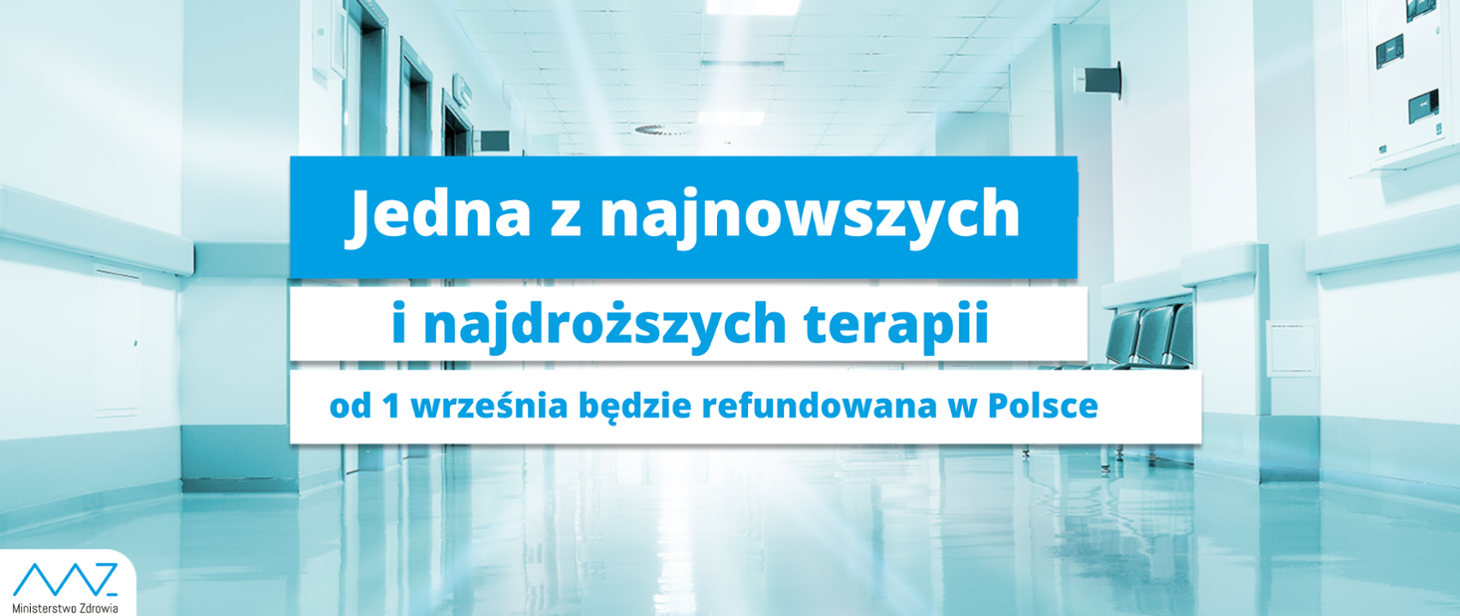The first CAR-T cell and gene therapy has been reimbursed in Poland since 1 September. One of the most advanced medical procedures and most expensive therapies in the world is available for patients up to the age of 25 with B-cell acute lymphoblastic leukaemia.
- This is a breakthrough in cancer treatment in Poland, as from 1 September we will reimburse one of the most innovative therapies for oncology patients, emphasises Health Minister Adam Niedzielski.
As the head of the Ministry of Health points out, the reimbursable CAR-T therapy uses the patient's own immune system and advanced genetic engineering to fight cancer through genetically modified T cells.
- The therapy offers the chance to prolong life and even cure the disease in people for whom doctors have exhausted currently available treatments, Minister Adam Niedzielski points out.
The medicinal product Kymriah, which has been reimbursed since September, has been registered as an advanced therapy product, based on the opinion of the EMA's Committee for Advanced Therapies (CAT). Kymriah is classified as a gene therapy drug. Gene therapy with Kymriah is based on the genetic modification of T lymphocytes taken from the patient.
T lymphocytes are the most specialised cells of our immune system and it is these that are taken from the patient's blood, sent to the laboratory where they are genetically and genetically modified to recognise tumour characteristics. Later, the cells are multiplied and transferred again to the patient during an intravenous infusion. The modified CAR-T-cells that enter the patient's blood recognise and destroy tumour cells.
By decision of the Minister of Health, from 1 September 2021, CAR-T therapy is reimbursed for the indication of relapsed or refractory B-cell acute lymphoblastic leukaemia in children and adults up to 25 years of age. Patients up to 25 years of age with relapsed/refractory B-cell acute lymphoblastic leukaemia (ALL) who have at least one of the following conditions are eligible for treatment:
- second or subsequent recurrence in the bone marrow;
- relapse (in the bone marrow) after allogeneic haematopoietic stem cell transplantation (allo-HSCT) and after a gap of at least 4 months between allo-HSCT and tisagenlecleucel administration;
- Primary treatment resistance defined as failure to achieve complete remission (CR) after 2 cycles of standard chemotherapy or chemo-resistance defined as failure to achieve CR after one cycle of reinducing treatment used in relapsed ALL;
- ALL with the Philadelphia chromosome present with intolerance or failure of at least two lines of tyrosine kinase inhibitor (TKI) treatment or contraindication to TKI therapy;
- ineligibility for allo-HSCT due to comorbidities, contraindications to conditioning treatment prior to allo-HSCT, lack of a suitable donor or previous allo-HSCT.
- the patient's functional criteria must be met together.
Treatment will be able to be provided in specialised centres in various cities in Poland. Currently, Responsible Entity certification is held by:
- Paediatric B-cell Acute Lymphoblastic Leukaemia (B-cell Acute Lymphoblastic Leukaemia) Clinic for Paediatric B-cell Acute Lymphoblastic Leukaemia "Cape of Hope" of the University Clinical Hospital in Wrocław (where this therapy can be and is already being used)
- Department of Haematology, Transplantology and Internal Medicine UCK WUM in Warsaw (young adults)
- Department of Haematology and Bone Marrow Transplantation of the Clinical Hospital of the Transfiguration of the Lord UM in Poznan (young adults)
- Department of Bone Marrow Transplantation and Oncohaematology, Maria Skłodowska-Curie National Cancer Institute, Gliwice Branch (young adults)
This is not the end of the novelties on the September list of reimbursed medicines. Also included in the reimbursement are:
- PKU GMPro drug reimbursed on elimination diet in Phenylketonuria for patients over 12 years of age whose daily phenylalanine tolerance allows the use of glycomacropeptide preparations.
- Cortiment MMX, a drug used in the induction of remission in patients with active microscopic colitis, also a rare disease.
- Cystagon, a drug for patients with the early childhood form of nephropathic cystinosis (an ultra-rare disease).
The September announcement also extended the current indications for the drug Tresiba. This insulin degludec will be reimbursed in type I diabetes in children over 1 year of age and adolescents. Type 2 diabetes in children over 1 year of age and adolescents treated with NPH insulin for at least 6 months and with HbA1c ≥8% and type 2 diabetes in children over 1 year of age and adolescents treated with NPH insulin for at least 6 months and with documented recurrent episodes of severe or nocturnal hypoglycaemia and diabetes in children over 1 year of age and adolescents with a known cause (as defined by the WHO).
Source: gov.pl

